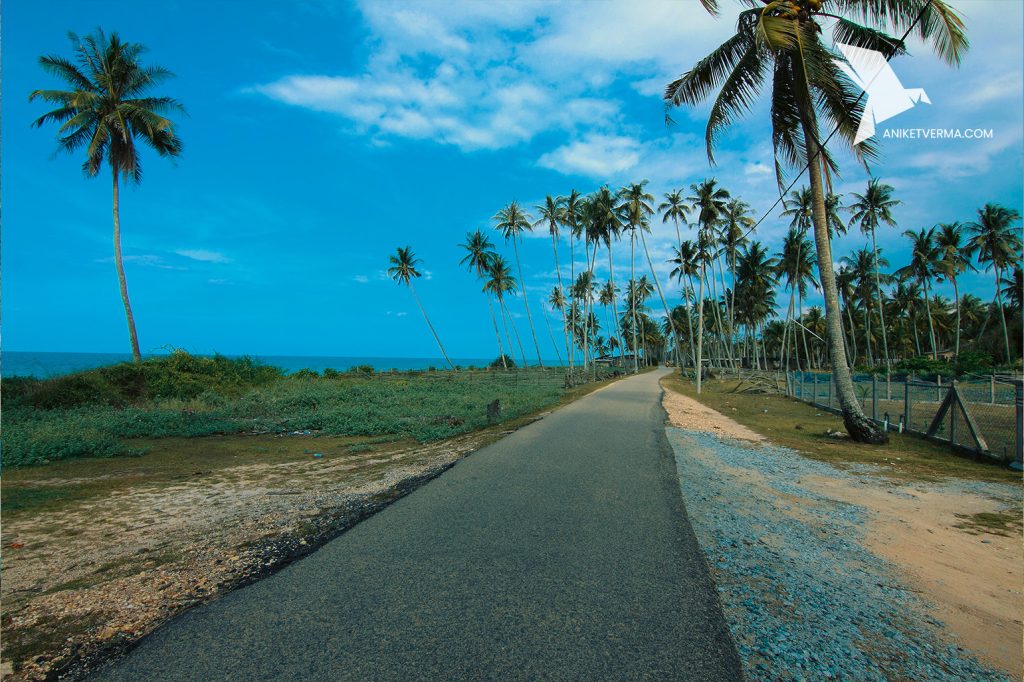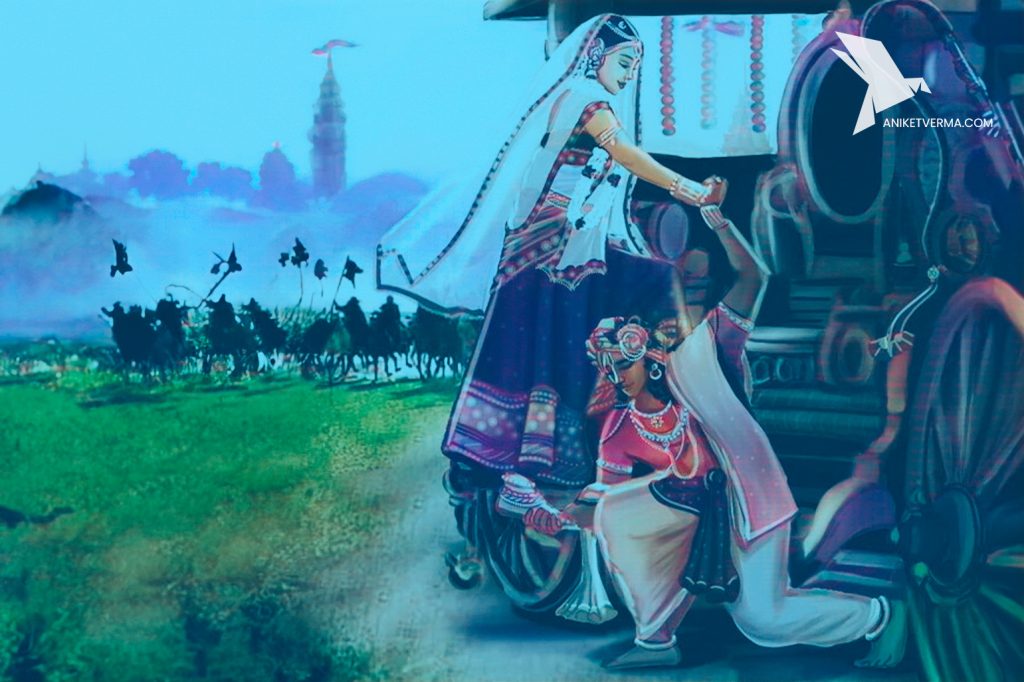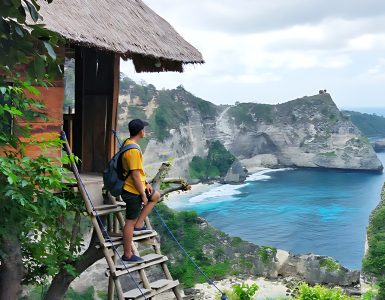Introduction | History of Goa
History of Goa | Goa, the smallest state in India, holds a rich and fascinating history that spans several centuries and encompasses various rulers and cultures.
From the mythical tales of the Mahabharata to the era of the powerful Ashoka, the consecutive Hindu dynasties, and the colonial rule by the Portuguese Empire, Goa has witnessed significant events that have shaped its identity. In this blog post, we will take a journey through time, exploring the key historical periods that have contributed to the formation and development of Goa as we know it today.


Table of Contents | History of Goa
Myths and Stories from Mahabharata | History of Goa
According to Hindu mythology, Goa is believed to have been created by Lord Parashurama, an incarnation of Lord Vishnu. Legend has it that after the great Kurukshetra war in the epic Mahabharata, Lord Parashurama washed his axe in the sea, which led to the creation of a landmass now known as Goa.


This mythical tale highlights the mystical origins of Goa and its deep-rooted connection to ancient Indian legends.
Goa is also associated with the legendary figure of Lord Krishna. It is said that Lord Krishna kidnapped his consort, Rukmini, from her marriage ceremony in a village near Goa. The place where this event occurred is now known as the village of Verna in Goa. Mythological stories like these add an enchanting allure to Goa’s history and captivate the imagination of locals and tourists alike.
The Era of Consecutive Hindu Dynasties | History of Goa
After the decline of the Mauryan Empire, Goa witnessed the rise of several Hindu dynasties that left an indelible mark on its culture and heritage. The Rashtrakutas of Malk, who ruled from the 8th to the 10th centuries CE, made significant contributions to art and architecture in Goa. Their patronage of Hindu temples, such as the famous Shiva Temple at Tambdi Surla, highlights the rich religious heritage of the region.
Another notable dynasty that played a significant role in shaping Goa’s history was the Kadambas. The Kadamba dynasty, which ruled from the 10th to the 14th centuries CE, saw Goa flourish as a center of trade and spirituality. They fostered the growth of the Jain and Vaishnava traditions, leaving behind exquisite temples and sculptures that still stand today as a testament to their reign.
Rashtrakutas of Malk
The Rashtrakutas of Malk, who ruled from the 8th to the 10th centuries CE, left a lasting impact on Goa’s art and architecture. They introduced their unique style, which blended elements of northern and southern Indian architectural traditions. The famous Shiva Temple at Tambdi Surla, built during their reign, is a remarkable example of their architectural prowess.
Kadambas
The Kadamba dynasty, which ruled from the 10th to the 14th centuries CE, witnessed Goa’s transformation into a prominent center of trade and spirituality. Under their rule, trade relations with foreign countries flourished, bringing prosperity to the region. Additionally, the Kadambas patronized the growth of the Jain and Vaishnava traditions, which left behind magnificent temples and sculptures that are marvels of craftsmanship.
Bahmani Sultanate
In the 14th century CE, Goa came under the dominion of the Bahmani Sultanate, a Muslim kingdom that emerged as a significant political power in South India. They introduced Islamic influences in the region and built several mosques and other architectural marvels. This period of Muslim rule played a critical role in the cultural synthesis of Goa.
Colonialism by the Portuguese Empire
The most transformative period in Goa’s history came with the arrival of the Portuguese Empire in the 16th century. The Portuguese, led by Vasco da Gama, established their stronghold and began a reign of over four centuries. During their rule, Goa became the capital of Portuguese India and a crucial trade port, connecting Europe with Asia. The Portuguese influence is still evident in Goa’s architecture, cuisine, and way of life.
The arrival of the Portuguese also brought the spread of Christianity to Goa. The missionaries, such as Saint Francis Xavier, played a significant role in the conversion of the local population. Today, Goa is known for its vibrant Christian community and impressive churches that stand as a testament to Portuguese colonialism.
From Colonial Rule to Statehood | History of Goa
In 1510, the Portuguese, under the leadership of the renowned explorer Vasco da Gama, landed in the coastal paradise of Goa. Swiftly and decisively, they asserted their dominance, marking a pivotal moment in the region’s history. This marked the onset of a Portuguese colonization that would endure for more than four centuries, imprinting an everlasting legacy upon Goa’s cultural, architectural, and linguistic landscape.
The colonial epoch saw Goa evolve into a bustling trade nexus, a melting pot of cultures that converged and intertwined. Indian, European, and African influences melded seamlessly, weaving a vibrant tapestry that defined the essence of the land.
This blending was not only evident in trade but also in the very soul of Goa, where distinct traditions fused harmoniously.The Portuguese presence was not solely marked by commerce but by a profound impact on the very fabric of the state.
Churches, cathedrals, and architectural wonders stand to this day, tangible testaments to the enduring influence of Portuguese architecture. The Portuguese language found a home here, intermingling with native tongues, leaving an indelible linguistic mark.
The tapestry of Goa’s history is intricately woven with threads of diversity, woven through the colonial loom. The echoes of explorers and the convergence of cultures resonate through time, defining Goa’s unique identity. This article delves into the historic arrival of the Portuguese and their role in shaping Goa’s narrative.


The Charm of Goa Today | History of Goa
Today, Goa is renowned for its stunning beaches, vibrant nightlife, and a unique blend of Indian and Western cultures. It has become a popular tourist destination, attracting millions of visitors from across the globe each year. The state’s picturesque landscapes, including its palm-fringed shores and lush tropical forests, mesmerize travelers seeking solace or adventure.
Goa’s vibrant festivals, such as the colorful Carnival and the spiritual Shigmo, showcase the state’s rich cultural traditions and heritage. The unique culinary delights of Goa, with its blend of Konkani, Portuguese, and international flavors, leave visitors craving for more. Traditional folk dances, such as the lively Fugdi and the energetic Dekhni, reflect the dynamic and exuberant spirit of the Goan people.
In addition to its natural beauty and cultural extravaganza, Goa is also home to several UNESCO World Heritage sites, including the Basilica of Bom Jesus and the Churches and Convents of Old Goa. These architectural marvels stand as a testament to Goa’s colonial past and attract history enthusiasts and architecture aficionados from around the world.
Today’s Goa and preserving the past | History of Goa


As we fast forward to the present, Goa has emerged as one of India’s most popular tourist destinations, attracting visitors from around the world. Its sun-kissed beaches, vibrant festivals, and distinct blend of cultures make it a truly unique holiday destination.
While modernization has brought its fair share of challenges, efforts are being made to preserve Goa’s rich heritage. The Archaeological Survey of India and local organizations work tirelessly to protect and restore historical sites, ensuring that future generations can still marvel at the splendor of Goa’s past.
Conclusion | History of Goa
Goa’s journey from the mythical tales of the Mahabharata to becoming the 25th state of India is an enchanting and captivating story. The state’s ancient past and colonial history have shaped its vibrant culture, architecture, and traditions.
Today, Goa stands as a testament to the harmonious coexistence of diverse communities and celebrates its rich heritage with pride. Whether you are a history buff, a culture enthusiast, or a nature lover, Goa offers a captivating experience that will leave a lasting impression. So why wait? Embark on a journey to Goa and immerse yourself in its fascinating history and vibrant present.
ℹ️ Goa is a western coastal state in India with a rich history.
📅 Goa has a long historical timeline, dating back to the prehistoric period.
🏰 The region has experienced the influence and rule of various dynasties, including the Mauryas, Satavahanas, Chalukyas, and Delhi Sultanate.
⚔️ Goa was part of the Vijayanagara Empire and later fell under the control of the Bahmani Sultanate.
⛪ Goa became a Portuguese colony in 1510 after Alfonso de Albuquerque captured it.
🕊️ The Portuguese influence can still be seen in Goa’s architecture, cuisine, and culture.
🏖️ Goa gained its independence from Portuguese rule in 1961 and became a part of the Indian Republic.
1-liner summary: Goa, a coastal state in India, has a history that spans from ancient times to Portuguese colonization, with a diverse cultural heritage. ⏳ #GoaHistory #PortugueseColonization #CulturalHeritage #IndianRepublic #CoastalState
The history of Goa is a vibrant tapestry woven with myth, legends, and the footsteps of different civilizations. From its mythical creation to the colonial legacy, from the struggle for freedom to the celebration of diverse cultures, Goa’s history is a captivating tale that continues to unfold.
As you explore this mesmerizing state, take a moment to appreciate the layers of history that lie beneath its surface. From the ancient rock-cut caves to the awe-inspiring churches, every step in Goa is an opportunity to immerse yourself in its fascinating past.
So go ahead, relish the local cuisine, bask in the golden sands, and let Goa enthrall you with its timeless charm and allure.
















Add comment